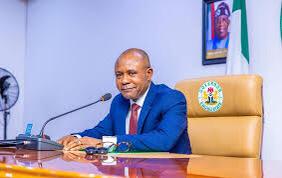In a bold step to tackle rising criminal activities allegedly linked to some traditional medicine practitioners, the Governor of Enugu State, Dr. Peter Ndubuisi Mbah, has transmitted an Executive Bill to the Enugu State House of Assembly aimed at regulating the operations of native doctors, herbalists, and similar practitioners across the state.
The proposed legislation, which is generating significant public interest, is part of the Mbah administration’s wider strategy to enhance security, restore public trust in law enforcement, and sanitize the traditional healing space that, in recent years, has come under scrutiny for its alleged role in aiding criminal elements.
Why This Bill? The Concerns That Prompted It
Over the years, there has been growing concern in Enugu State—and indeed across many parts of Nigeria—over the role some native doctors and traditional herbalists are believed to play in facilitating criminal activities. From offering charms and “spiritual protection” to suspected criminals, to providing hideouts or even conducting rituals that embolden crimes such as kidnapping, ritual killings, and cult-related violence, some traditional practitioners have allegedly crossed the line from healing to harm.
Security agencies in the state have also, on several occasions, arrested suspected kidnappers and cultists who confessed to receiving backing or spiritual fortification from native doctors. In some cases, human body parts were found in shrines, raising serious questions about the activities going on under the guise of traditional medicine.
According to a senior government official who spoke anonymously, the Executive Bill seeks to create a clear legal distinction between legitimate practitioners of African traditional medicine and those exploiting the practice to perpetrate criminal acts.
What the Bill Proposes Although the full text of the Executive Bill has not yet been made public, sources within the State Government indicate that it contains several key provisions:
1. Registration and Licensing
All native doctors, herbalists, spiritualists, and related practitioners will be required to register with the appropriate government authorities. This includes disclosing their identity, location, nature of services, and background.
2. Monitoring and Supervision
A regulatory body or unit will be set up to supervise the activities of traditional healers. This body will work closely with law enforcement agencies and community leaders to ensure compliance with the law.
3. Ban on Ritual Practices Involving Human Harm
The bill reportedly includes strong penalties for any practitioner found to be involved in rituals that involve human body parts, promote violence, or encourage illegal activities such as kidnapping for ritual purposes.
4. Public Awareness and Education
The bill also proposes sensitization campaigns to educate the public about the difference between genuine traditional healing and practices that promote superstition, fraud, or criminal behavior.
5. Community Involvement
Traditional rulers and community heads are expected to play a central role in identifying and reporting illegal or suspicious activities by native doctors within their domains.
A Step Towards Safer Communities
Speaking during an event at the Government House earlier this week, Governor Mbah emphasized the need to preserve the cultural heritage of traditional medicine while eliminating its misuse.
“We recognize the value of traditional healing practices in our communities,” he said, “but we must also protect our people from those who hide under the cloak of tradition to commit atrocities.”
The Governor added that the move was not an attack on cultural or religious freedom, but a necessary action to restore sanity and order in the state.
“There is no place in Enugu State for anyone aiding violence, whether with guns or with charms,” he stated.
Mixed Reactions From the Public
As expected, the bill has sparked mixed reactions among different groups. While many citizens and security experts have welcomed the move as long overdue, some traditional practitioners are expressing concerns about potential harassment or discrimination.
Chief Ozo Nweke, a well-known herbalist in Nsukka, told reporters that while he supports the regulation of the practice, the government must be careful not to stigmatize all native doctors.
“There are those of us who are genuinely healing people,” he said. “We want the government to engage us before taking actions that may affect our livelihoods.”
Human rights groups are also keeping a close watch to ensure that the law, once passed, is implemented fairly and does not lead to witch-hunts or abuse of power by security operatives.
What’s Next?
With the bill now before the Enugu State House of Assembly, deliberations are expected to begin soon. Stakeholders including traditional leaders, health professionals, security agencies, and civil society groups are likely to be invited to public hearings to contribute their views.
If passed into law, Enugu will join other Nigerian states like Anambra and Ogun, which have taken steps to regulate traditional medicine practices due to their misuse by some unscrupulous individuals.
Final Thoughts
Governor Mbah’s move reflects a growing awareness among state governments of the complex role traditional beliefs and practices play in Nigeria’s security landscape. While traditional medicine remains an integral part of many communities, it must not be allowed to become a tool for destruction.
As Enugu State inches closer to implementing this groundbreaking law, all eyes will be on how it balances tradition, security, and human rights in a culturally diverse society.
Join our Whatsapp channel to stay updated always!
Click here to join our Whatsapp channel




